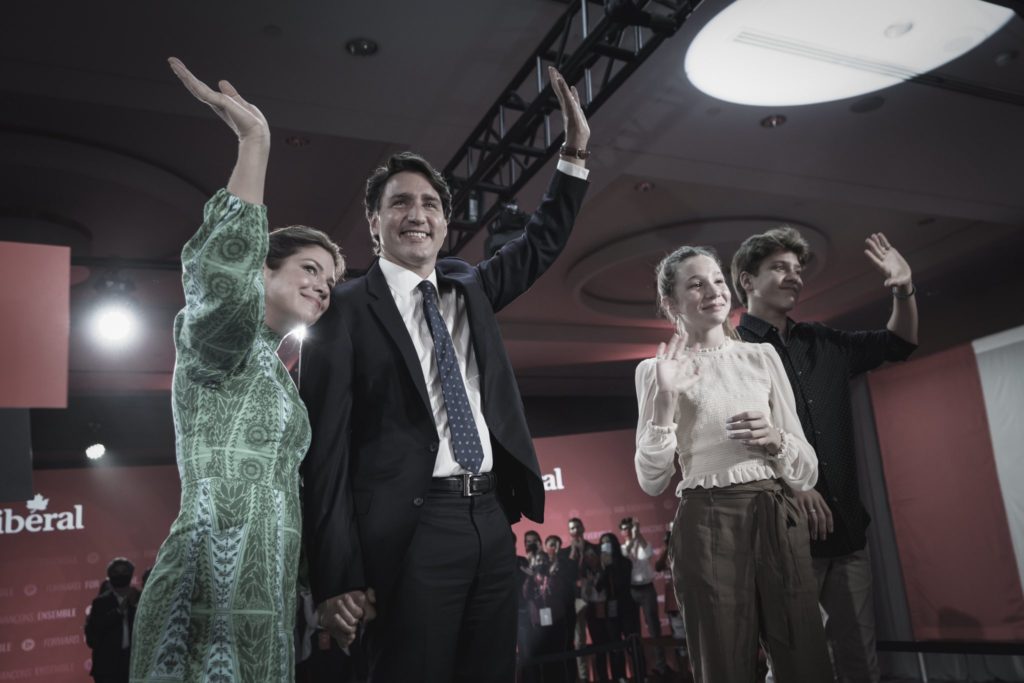Election 2021: What Will and Won’t Change

Don Newman
September 21, 2021
If you look at the top line numbers it will be hard to disagree with the assessment that this is the election that changed nothing. The Liberals win the most seats and the Conservatives win the popular vote. The Liberals have a minority government with a caucus that is — at press time and without mail-ballots tallied yet — around 40 seats larger than the Conservatives, who finished second, just like two years ago, and still at least 10 seats short of a majority. The Bloc Québécois added two seats but is still six seats short of its 40- seat target and NDP Leader Jagmeet Singh — who is personally well-regarded — is proving that nice guys finish fourth.
But while the results are little changed from those in 2019, things could change dramatically going forward for several reasons. The first is the leadership of the Conservative Party. The concession speech Erin O’Toole made as the results became known Monday night was no concession speech at all. It was the first speech of his campaign to remain as leader of the Conservative Party. In all of their incarnations, the Conservatives have been brutal in their treatment of leaders who fail to win. And O’Toole has a leadership review to face after Monday’s loss.
His position is made more difficult because although he ran as a “true blue” Conservative when he won the party leadership in 2020, he tried with some success to move more toward the centre in the campaign. He cast himself and the party as “Progressive” Conservatives like the party absorbed by the right-wing Canadian Alliance earlier this century. Not surprisingly, that provoked a good deal of grumbling from the true believers, particularly in western Canada, and led to increased popular vote support for the libertarian Peoples Party of Canada.
Changes should be adopted because it is clear that Canada is faced with a growing number of political parties, which in turn increases the possibility that most elections will produce minority governments and an inherently unstable House of Commons.
This could be a particular problem for O’Toole. He is from Ontario and the changes he made to moderate the party were meant to appeal to voters in the province that, with 121 seats, has more than a third of the 338 seats in the House of Commons. But the changes didn’t work. The Conservatives still couldn’t break into the multitude of seats in and around Toronto.
Their leadership is something that O’Toole and the Conservatives will have to work out themselves. But based on his vigorous remarks when he lost the election it is clear that O’Toole thinks the challenge for his job is a serious one and he is prepared to fight to hold onto it.
Other changes that the election should trigger involve all the parties, and will be much harder to achieve. They have to do with the mechanics of how campaigns are organized, and how the House of Commons is run. Changes should be adopted because it is clear that Canada is faced with a growing number of political parties, which in turn increases the possibility that most elections will produce minority governments and an inherently unstable House of Commons.
To deal with the instability of minority governments, the rules should be changed in the House on the issue of confidence votes that can defeat a government and trigger an election. The trade-off would be that the parties in opposition would have more power to negotiate on things like the budget and the throne speech, in return for a minority government not having to play brinkmanship on every confidence vote.
And in terms of the way elections are run, surely the English debate in the last election should convince at least anyone who watched that there has to be a better way to do things. Perhaps there should be a requirement that a party have at least 15 or even 20 percent support in the polls before its leader can take part. That would limit the number of participants. An even higher threshold would limit it to the people who actually have a chance of being prime minister.
Of course, the other parties and their leaders would scream at being excluded. Perhaps another debate for the also-rans could be held as well. There are probably other changes that should be contemplated. Any change will be resisted by the politicians affected, but the systems of electing members of Parliament and of running efficient governments should work to the benefit of Canadians – not to candidates and the people elected to office.
Contributing Writer and columnist Don Newman, an Officer of the Order of Canada and a lifetime member of the Parliamentary Press Gallery, is the author of the bestselling Welcome to the Broadcast and Executive Vice President of Rubicon Strategy, based in Ottawa.
